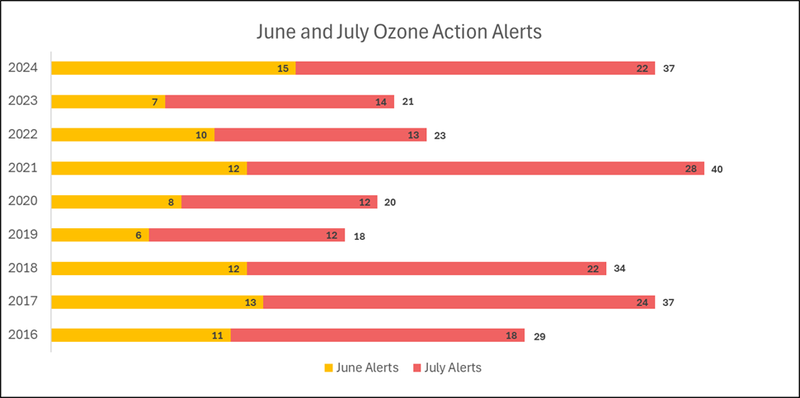For Immediate Release, August 7, 2024
|
Contact: |
Ryan Maher, (781) 325-6303, [email protected] |
Lawsuit Launched to Force EPA to Correct Air-Pollution Permit for Colorado Methane Gas Plant
Colorado Regulators Failing to Curb Harmful Ozone Pollution
DENVER— The Center for Biological Diversity notified the U.S. Environmental Protection Agency today of its intent to sue over the agency’s delay in taking over a flawed air-pollution permit for a methane gas processing plant north of Denver, Colorado.
In April the EPA objected to a pollution permit issued by the Colorado Department of Public Health and Environment authorizing DCP Operating Company to operate its Platteville Natural Gas Processing Plant in Weld County. The EPA found that the state had failed to ensure flares used by the plant to destroy harmful air pollution were working properly; it ordered Colorado to revise the permit to comply with the Clean Air Act. Because Colorado missed a July 1 deadline to fix the permit, federal law requires the EPA to fix it or to deny the permit altogether.
“Permitting is nothing but a paperwork exercise without requirements that guarantee facilities are properly destroying their toxic air pollution,” said Ryan Maher, a staff attorney at the Center. “Immediate EPA action is vital, because the flaws in this permit are present in thousands of permits for oil and gas facilities across Colorado. It’s time to fix this widespread problem once and for all.”
Today’s notice comes as Colorado’s oversight of the oil and gas industry’s air pollution, particularly the widespread use of flaring, is falling under increasing scrutiny. The EPA’s rejection of this permit follows a similar January decision in which the agency rejected four air-pollution permits for oil and gas well pads for failing to monitor flare pollution. And on July 31 the EPA rejected another permit for an oil and gas well pad for inadequate flare monitoring.
The Platteville Natural Gas Processing Plant releases large amounts of nitrogen oxides and volatile organic compounds, which contribute to ground-level ozone, the key ingredient of smog. The plant contributes to dangerous air quality in the Denver Metro-North Front Range area, a nine-county region home to more than 4 million people that has violated ozone health standards for nearly two decades. The plant is also a large source of greenhouse gases.
This is an especially bad summer for Colorado ozone. State regulators issued a record-setting 15 Ozone Action Alerts during June of this year, more than any previous June since the state began issuing alerts based on an ozone health standard set by the EPA in 2015. This year the state has issued 37 Ozone Action Alerts for June and July combined, which ties the second highest number of alerts after the 40 issued in 2021, one of the worst years on record for Colorado ozone.
Smog pollution from the oil and gas industry is linked to human health problems like asthma attacks, cardiovascular issues and premature death. Those most at risk include older adults, children and people who work outdoors. The harm smog does to plants can damage entire ecosystems and reduce biodiversity.
More information about the Center’s fight against air pollution is available at Protecting Air Quality Under the Clean Air Act.

The Center for Biological Diversity is a national, nonprofit conservation organization with more than 1.7 million members and online activists dedicated to the protection of endangered species and wild places.

